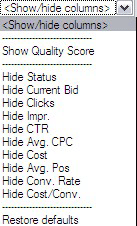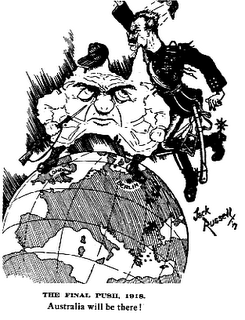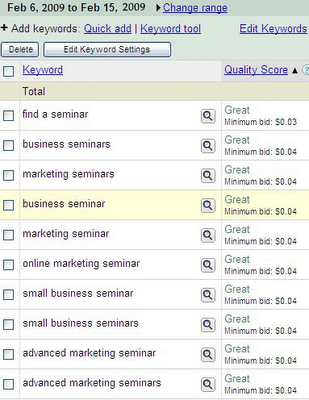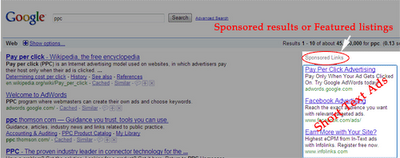How to get higher Quality score in Google adwords Pay per click
Before proceeding to know how to get higher Quality Scores, l, we need to understand how a quality score is calculated. Simply stated, a Quality Score is calculated every time your keyword matches a search query – or in other words, every time your keyword has the potential to trigger an ad.
Then, it is necessary to know why Quality Score is important. The Ad Rank or the position an ad shows on a search result or across the content network – is determined by maximum cost per click and quality score. There is a widely accepted formula to arrive at the ad rank and the formula may be stated thus:
| Ad Rank = [(keyword / ad group] quality score) X Max CPC] |
Though somewhat confusing, one needs to understand that for search purposes, the keyword quality score is used and for content the ad group quality score is used. For keywords, every keyword has a quality score fixed to it. So, it is important to keep in mind when talking about ad copy as it will be associated with multiple keywords.
Here’s the step by step instructions on adding your quality score column to your keyword view.
First, navigate to the keywords in your AdGroup. Next, click on the ‘customize columns’ option seen below.

This will let you see the drop down menu:

Click on ‘Show Quality Score’. Your AdGroups will now look like this
A keyword’s Quality Score influences its cost-per-click (CPC) that is, how much the advertiser is charged for a click on the ad when it is triggered by a keyword. The higher a keyword’s Quality Score, the lower is its Cost per Click (CPC), and vice versa.
Quality Score also determines, in a way, if a keyword is eligible to enter the ad auction that occurs when a user enters a search query. Usually, the higher the Quality Score, the lower will be the applicable costs and the better your ad position. Every time one of your keywords matches a search query, the combined Quality Score and cost-per-click (CPC) bid is evaluated to see if it’s eligible to enter the ad auction. Keywords with a higher Quality Score will be eligible to enter the auction more easily and at a lower cost.
On the keyword analysis page, there will be a metric called ‘first page bid estimate,’ that means the CPC bid required for your ad to appear on the first page of Google search results assuming the search query exactly matches your keyword. The estimate is obviously based on the Quality Score as well as the advertiser’s competitors for that keyword. However, it is to be noted that succeeding in your first page bid is no guarantee of your ad placement which will depend on Quality Score, your CPC bid, your budget and user and advertiser behavior.
It is to be understood that ads are positioned on search pages and content pages depending on their Ad Rank. The ad with the highest Ad Rank obviously appears in the first position, and the other ads appear in the order of their rankings. For Google, to put it simply, the Ad Rank is determined by your keyword’s Quality Score and (CPC) bid.
Microsoft adcenter – A beginner’s guide to Microsoft Pay per click
As most of us are aware, Pay per Click (PPC) search engine marketing is an advertising strategy where you, as an advertiser, pay a search engine every time a potential customer clicks on your ad. These ads appear either on search engine results pages or on sites within a search engine’s network of partners. The growth of the search industry worldwide has resulted in a big market for paid search advertising and hence most search engines have developed some type of PPC related, of course, to performance.
To appear in the PPC results, advertisers sign up for the PPC program and create short text ads, image ads or videos describing their product or services shown on their site in a way that will tempt searchers to visit it. While setting up the program, an advertiser will determine which trigger keywords/phrases they wish to bid on and how much they are willing to pay when a visitor clicks on their ad.
If you study at a search engine results page (SERP), you will be able to distinguish between search results that are regular organic search listings and PPC search results which are actually paid advertisements. These paid ones are generally listed under “sponsored results” or “featured listings” and consist of specially designed text, image or video ads that are triggered to display when your target keywords are used in a search query.
 Microsoft AdCenter (formerly MSN adCenter) has brought out the latest PPC. Microsoft adCenter is the division of the MSN entrusted with the task of providing Pay Per Click advertisements. Microsoft has joined the Big Three league the other two being Google and Yahoo – develop its own system for delivering PPC ads.
Microsoft AdCenter (formerly MSN adCenter) has brought out the latest PPC. Microsoft adCenter is the division of the MSN entrusted with the task of providing Pay Per Click advertisements. Microsoft has joined the Big Three league the other two being Google and Yahoo – develop its own system for delivering PPC ads.
Strictly speaking, Microsoft is not a stranger tp PPC as till recently, all of the Microsoft ads displayed on the MSN search engine were supplied by Overture and later Yahoo!. MSN claimed a percentage of the ad revenue in return for displaying Yahoo!’s ads on its search engine. As search marketing expanded and presented great opportunities, Microsoft has now developed its own system, Microsoft adCenter, for selling PPC advertisements directly to advertisers.
Microsoft adCenter lets you to offer bids for keywords or phrases you associate with your ads (See this : http://advertising.microsoft.com/wwdocs/user/en-us/adexcellence/flash/18_Bidding/index.html). This bid is the maximum amount you are willing to pay if any user searches for one of your keywords and clicks your ad. You can also increase your bid if you wish to reach specific audience target that fits your buyer profile. Generally, the higher the bid, the more likely their ad will show above their competitor’s
It is good to know that Microsoft sets store on the ability to build brand awareness with their PPC program, permitting the continued exposure of your brand to a wider audience, regardless how many clicks your ad attracts. This is an important feature of most PPC programs though Google or Yahoo is reluctant to use this strategy.
Borrowing ideas from Google adWords, Microsoft adCenter avails the maximum amount an advertiser is willing to pay per click as well as the advertisement’s click through rate (CTR) to determine how frequently an advertisement is shown. This dual operation is said to encourage advertisers to write effective ads and makes them advertise only on searches which are relevant to their advertisement.
Microsoft adCenter lets advertisers to target their ads by restricting their ads to a given set of locations. Similarly, adCenter allows advertisers to run their ads on select days of the week or at specific hours of day.
Quality score 10/10 asking bid 5$ to be on front page
This is the 1st time i feel Google is becoming a bit greedy. One of our client has a quality score 10/10 for a keyword related to windows. I cannot reveal keyword or client site here. Yesterday when i noticed the campaign i saw a 10/10 quality score for a keyword. I was overjoyed because usually very high quality score will result is low bids. Bit it was disappointment for me :-(. Asking bid was above 5$ for 1st page display.
Is Google joking it wants us to have great quality score but ends up asking 5$ for 1st page though we have 10/10 quality score. Can anyone explain this? I personally feel this is some sort of glitch or just greediness on part of Google.
If they think 10/10 is not enough they should remove the quality score completely. ill provide screen shot soon. Right now my gmail is down and the adwords login information is in my account.
Quality score attack by Google

Last week we saw few of our PPC campaigns hit by quality score. It seems the criteria better quality score had been hardened. Now Ad quality is in direct relationship with keywords. It seems we need to use keywords in ads to make it relevant. Also the landing page needs to be well optimized.
Even when the ads are not served often it results in sudden quality score penalty. Google’s quality score penalty is severe and difficult to get rid of. Especially in highly competitive areas quality score plays an important role.
In sponsored results even if you didn’t advertise?
Yes it’s possible but very rare. Sometimes this might be good or sometimes bad. I have heard cases in forums and blog posts where people notice their website popping up in search sponsored results without them advertising. There are few possible reasons for it.
1. If you have affiliates they might be advertising your name without notifying you. It can help or hurt you, you need to decide whether you allow them or not.
2. Some competitor is so keen about competing with your keywords and rankings that they might end up entering your URL instead of their own URL for destination URLs. Yes its possible and has happened in our experience one of our PPC trainee did this mistake, she was supposed to research competitor sites and have them as reference she ended up adding the competitor URL in destination URL and the campaign ran almost a day without noticing.
3. Potential black side is some competitor trying to be unethical to you by advertising for some crap keywords that are not relevant to your Business and redirecting those keywords traffic to your site to spoil your reputation. Yes its possible though I haven’t heard something like this happening.
4. Also sometimes it might be someone in your own company advertising without your knowledge. Did you check your company and with everyone including the marketing department whether they are running any small test campaigns. It has happened before for our own clients.
5. Also I read once Adwords advisor in webmaster world said it could also be fan interest on your website. There are some fans who for good will want to direct traffic to your website. You need to check this highly potential possibility.
Is PPC in Bing any better?
It’s too early and too unfair to give any judgment for Bing search engine. Bing is only establishing itself now as a genuine search engine. In just 15 days already Bing has produced some quality relevant results and has already captured some decent market share in search engines. I am sure Bing is a search engine of future they have good quality results almost as good as Google in some areas. I see a lot of geo-targeting going on and they don’t have easy access to areas where I can set my geo-location. But even if I set a geo location I still cannot see only US results I see a lot of results from my country and countries popping up due to geo targeting happening through IP location.
I feel as a PPC manager I need to start focusing seriously on Bing. This is what Microsoft has to say about Bing and its search advertising program.
“Microsoft is committed to Search and Search advertising, and is dedicated to providing you the best value for your online advertising dollar. The innovative Bing search experience is designed to maximize opportunity to capture and retain new users, grow query share, and most importantly, help you make the most of your online advertising investment.
In the coming months, a broad reaching awareness campaign spanning television, web, radio, and print will inform and entice consumers to try Bing. Now is a great time to take a look at your current search strategy and take advantage of the momentum that this campaign will drive.”
We all know how aggressive Microsoft is. I am sure they will promote Bing aggressively and seeing the quality of results and the ever increasing user base I am sure we might need to do a lot of PPC for Bing in future.
Yahoo PPC can you make money from it?
Well I haven’t talked about Yahoo’s PPC program Yahoo search marketing for a long time. It’s not that I want to ignore it but I feel there isn’t much happening with Yahoo. We rarely recommend Yahoo Search Marketing to our client these days. It’s only because it rarely converts. Comparing 5 recent clients we did with YSM with 5 recent clients of Google Adwords almost its 0-5 in conversion. Google Adwords convert much better than YSM. Most of our clients recommend us to stop using Yahoo search marketing for their PPC campaign.
So why is this happening and can you still make money from YSM?
I really don’t know the exact reason why this is happening. I feel it might be the same type of users that are clicking from Yahoo compared to Google. Why this difference? Is it because the clicks might be fraudulent? But yahoo signed up with click fraud a click fraud prevention company and some companies have rated high their capabilities to avoid click fraud effectively. So what is causing this drop in conversion, I feel it could be that most of yahoo users are not exactly looking to buy stuff. They might just be clicking because they want to know what the product is about. Recently we got a blast from one of our client for spending 3000$ in Yahoo PPC without any reasonable conversion. We talked to Yahoo about it and they replied saying all are valid clicks and nothing can be done.
I have heard stories of people making money with YSM but personally I was rarely successful. When you use Yahoo search marketing make sure you give it a try with limited budget and if it works go ahead and spend money on it.
1. Can a new ecommerce website get away without PPC
Pay Per Click search engines have come a long way from just being one way of targeted traffic to being one of the most important and primary source of targeted traffic. Google Adwords, Yahoo search marketing, MSN AdCenter, Adbrite and we can name a lot. Online Businesses had become so much addictive its virtually impossible to see one good online Business that doesn’t use PPC campaign as their source of Business. In this so much dependency on PPC world, can a ecommerce website survive without running a PPC campaign?
Well it’s a question that makes itself difficult to answer. There are ways to get away from PPC and still prosper. But PPC cannot be avoided altogether. Pay per Click should always be the starting stage for all ecommerce websites. It gives you a clear insight that your targeted users are, where those visitors come from, what keyword they search for, which keyword converts better etc. This type of quick start and detailed analysis is not available in organic traffic or any other traffic source. If you want to be great by yourself you need to be already established or come out to internet with a bang. If you are Amazon or EBay you don’t need to depend on any sort of search engine traffic. Amazon, eBay and other top sites get traffic from countless sources. But they get this because they are already well established its not that easy for new sites. I have heard of some rare instances where a website comes with a bang and becomes instant popular. This happens especially in word of mouth referrals.
Apart from these you cannot avoid PPC. Pay per click should always be the starting point for traffic for ecommerce sites. You don’t have to use it ever but to learn the way online Business works you need to get started with PPC. Long term results should be organic so SEO is the best for long term solution but the starting point is PPC. Till now I haven’t heard of one ecommerce Business who come to us for SEO that never used PPC. So PPC is here to stay and can never be avoided especially for ecommerce startups.
Yahoo PPC vs Google Adwords PPC.
I have been avoiding learning how yahoo works for some time. Today I decided to really get into it. Our agency has a Yahoo agency rep that helps us out a lot and I just spent a lot of time talking to him on the phone. Come to find out Yahoo is very different. Here are a few items I hope this turns into a big discussion.
1. Quality Score:
Google – Quality score is on an individual keyword and is figured out at time of search. You can have low and high QS keywords in the same ad group. Broad match and phrase match keywords only show the average QS. Only exact match shows a close to real QS and even then it is still an average since QS is based on things that happen at time of search.
Yahoo – Quality score is only shown at the ad group level. This means that everything in the ad group contributes to the QS. A bad QS keyword can drag down the others. They recommend that we organize ad group like in Google but then split up the ad group by traffic. This means that I get 3 times as many ad groups in Yahoo than I do Google.
2. Match Type.
Google Phrase, Broad, Eact, Negative Phrase, Negative Broad, Negative Exact. Broad is a wild card that will find all keywords with any of the keywords in your term plus synonyms, plurals, singulars and anything that could be remotely related. Phrase will take the exact match of what you put in the term and allow any other terms that have that exact phrase plus anything before or after the term. Exact is very exact nothing more nothing less. Negatives work the same way except they don’t do any guessing. If you put in a singular you have to put in the singular as well. If you put in a negative match you can’t have the exact match of the same term. Google considers a plural and singular keyword to be two different words. Negatives can be done at the Campaign and ad group level.
Yahoo – Advanced, Standard, Excluded Words. This has been very confusing to me. It seems that you have broad and really broad. Yahoo does not have an exact match. Advanced is just like Google Broad and standard is just like Google broad used to be. If you put in a negative match keyword it won’t be excluded if you have it as a standard or advanced match. If you put in a singular it will also exclude the plural. Yahoo considers plural and singular keywords to be the same keyword there is no way to separate them. Negatives can be done at the account level and ad group level.
There are many other differences like campaign settings and geo targeting and so on but these are the 2 main things that are not obvious. I’m not saying that all this is true it is just my understanding. I hope we can talk about this and maybe clear up some of this stuff.
Is word tracker better than Google keyword suggestion tool?
Says so a representative from Word tracker. A word tracker representative was answering a question from a user about the difference with adwords keyword suggestion tool and word tracker keyword tracking tool. He says
“Hi there,
my name’s Mal Darwen, and I work for Wordtracker Customer Services. I hope the following is of some use to you:
Google’s Adwords tool can be a useful addition to the SEO’s toolkit, although it does seem to be more geared towards the PPC market. However, the number of results returned by Google is 200 while with Wordtracker, users get and can download up to 1000 keywords.
We feel that Google is using this new tool to generate new Adwords accounts
from where it makes its money. Word tracker provides an independent keyword
research service on a subscription basis – we do not make money from each
keyword result that people might build on.
While Google reports impressive search volumes, there are a number of
caveats:
- The figures Google provides are not actual searches but approximations. Like WT, Google takes a small sample and extrapolates an estimate from that. From our research that sample appears small but we’re still investigating.
- The default search position is ‘broad match’. This highly inflates the search estimates for a particular keyword.
Broad matches are often less targeted than exact or phrase matches.
- The estimates returned by Google also contain searches from Google’s content network. That’s the wide range of sites that publish Google ads.
- Google are also reporting monthly estimates while Wordtracker provides daily estimates.
This means that on first examination the Google counts will seem much higher than WT.
Wordtracker has always been completely open about where we get our data from. We take our information from two metacrawlers, Dogpile.com and Metacrawler.com. People use such search engines to search Google, MSN and Yahoo at the same time and as such provides very clean bot-free data. We get daily records which represents approximately just under 1% of daily searches across all search engines.
As I say, I hope this makes things a little clearer.”






